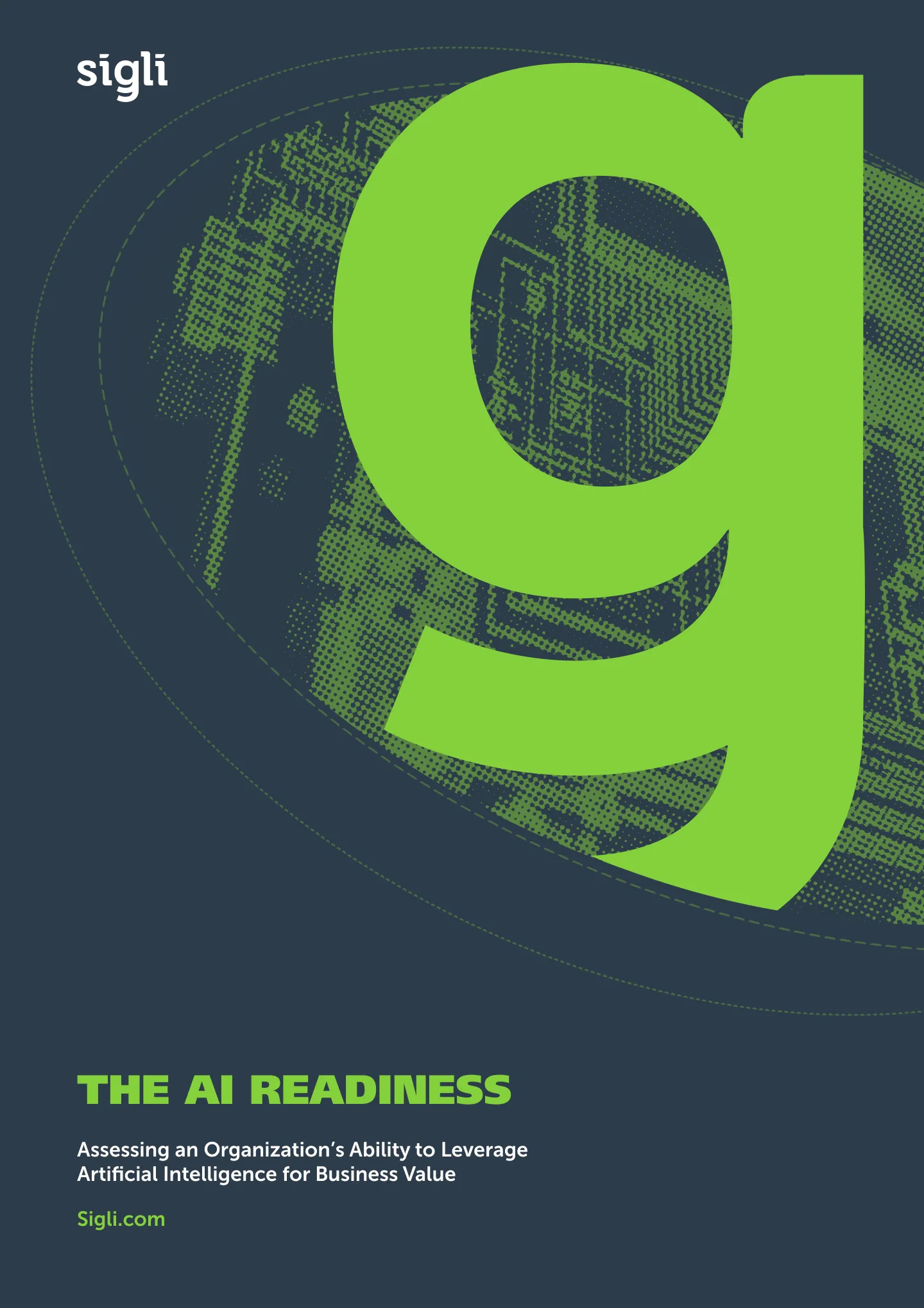Join us this March for two exciting AI events: AI in 2026: What really matters (March 10) and From AI promise to AI decision (March 19) REGISTER NOW!
Behind every AI model there is data, and data is gold. We are experts in providing data services and creating real impact through AI. However, not everyone can or should just slap an AI tag and call it a day. Use our self-assessment file to find out how ready you are!

In the rapidly evolving digital landscape, the buzz around AI is louder than ever. But what many don't realize is that the foundation of every groundbreaking AI solution is data—robust, meticulously organized, and insightful data. At Sigli, we've been at the forefront of data services long before the current AI hype began. Our expertise in data engineering and science forms the backbone of sophisticated AI models that drive real-world impact.
Our hands-on experience with a broad spectrum of industries, from Healthcare to Finance and beyond, has taught us that the path to AI empowerment is unique for every organization. It's not just about adopting AI; it's about adapting your data landscape to fuel AI-driven growth.

Evaluating a company’s competence in utilizing artificial intelligence to enhance business worth.

Transforming Complex Obstacles into Innovative Opportunities

AI algorithms analyze individual student performance and learning styles to tailor educational content and pacing to each student's needs. This personalized approach helps increase engagement, improve learning outcomes, and can drastically reduce dropout rates in educational institutions.

AI streamlines the claims processing workflow in the insurance industry by automating the extraction and analysis of data from claims documents. This reduces processing time, minimizes human error, and speeds up resolution times, improving customer satisfaction and operational efficiency.

AI leverages consumer data to deliver highly personalized marketing messages and product recommendations. By understanding consumer behavior patterns and preferences, retailers can enhance the shopping experience and increase sales through targeted advertising and tailored product offerings.

Utilize AI to develop more sophisticated credit scoring models that incorporate a wider range of data points, including non-traditional data such as mobile phone usage or rental payment histories. This allows financial institutions to better assess borrower risk and extend credit to underserved populations.

AI tools analyze trends and predict future market conditions in real estate, helping investors and realtors make informed decisions about when to buy, sell, or hold property assets. This predictive capability can optimize investment returns and minimize risks associated with market volatility.

AI optimizes logistics and distribution strategies by analyzing traffic data, weather conditions, vehicle performance data, and schedules to determine the most efficient delivery routes. This not only reduces delivery times but also cuts fuel consumption and operational costs.
As you stand on the brink of digital transformation, a world of possibilities opens up, especially within the realm of AI. This journey, while exciting, often comes with a host of questions and uncertainties. Whether you're exploring how AI can benefit your business, understanding the significance of data, or simply curious about the process, we're here to illuminate the path ahead.

In our commitment to delivering exceptional AI solutions, Sigli adopts a robust approach modeled after the Quality Assurance Guidelines for AI Systems by Toshiba.
5 Axes of Quality Assurance:
Stakeholder Involvement:
Development Stage Oversight:
Sigliguarantees AI solutions that are not only effective and advanced but are alsoaligned with international standards of quality and security.


